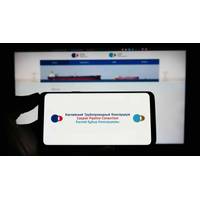LR Launches Offshore Drilling Software, ISIS
Lloyd’s Register (LR) launches its Integrated Software Intensive Systems (ISIS) notation to help prevent a range of safety and efficient issues which impact offshore drilling operators and can result in high non-productive downtime.
Dr. Michael Dinh, Lloyd’s Register’s Data System Specialist and one of the authors of ISIS, along with his team based at the Lloyd’s Register Global Technology Centre in Singapore, worked to resolve a number of issues facing rig operators. These included project delays, and the costly impact of late delivery of assets, software security concerns, and the uncertain environmental and safety performance factors associated with non-productive downtime.
“We understand the challenges that face industry with the new generation of high specification drilling rigs,” said Dinh. “These rigs make considerable use of complex Integrated Software Intensive Systems to achieve unprecedented levels of automation, quality, performance and safety.
“Software is invisible - so are its faults, and software-intensive systems become more complex to understand and manage; also their complex components may be very hard to specify. Offshore drilling rigs are complex operating platforms, with tens of thousands of components out there – reliability and predictability is a must have. To have reliable, operable and manageable software requires a standardised development process, a strict, accurate yet practical testing method, and the right system from software specification at design phase to software change management at operation phase.”
The ISIS notation, which is part of the newly released Mobile Offshore Unit (MOU) Rules, provides a perspective of ‘Total System through Life in Context’, and reduces the risk of ambiguity on roles and responsibilities of stakeholders - owners, operators, shipyards, and suppliers - when dealing with software and integrated systems. It improves the visibility and requirements on the development process of software, and provides the required state-of-art software inspection techniques.
“Our experience and research in the field of offshore drilling provides an in-depth understanding of when and how risk is introduced, and how risk can be better managed from the very outset and before it leads to fault or costly failure when operating at sea. A robust system and review of complex control systems early in their specification means better quality, operating performance, cost management and safety,” states Dinh.
Given the rate of innovation in the drilling industry, Lloyd’s Register’s unprecedented offshore experience, including its technical expertise above and below the water line with its leading world-class experts from ModuSpec and WEST Engineering – now under the company’s newly formed ‘Lloyd’s Register Energy – Drilling’ business - means that its tools and software will increasingly be applied to the growing complexity around reducing non-productive downtime in current and new-build offshore rigs.
Lloyd’s Register is the only class society to participate in the ISO/IEC Committee that develops standards for systems and software engineering such as IS0/IEC 15288 and 12207. That insight has allowed them to apply this ISIS notation, and related standards, to the drilling industry in the most practical way.
The new Offshore Rules are freely available to download from www.lr.org/offshorerules



